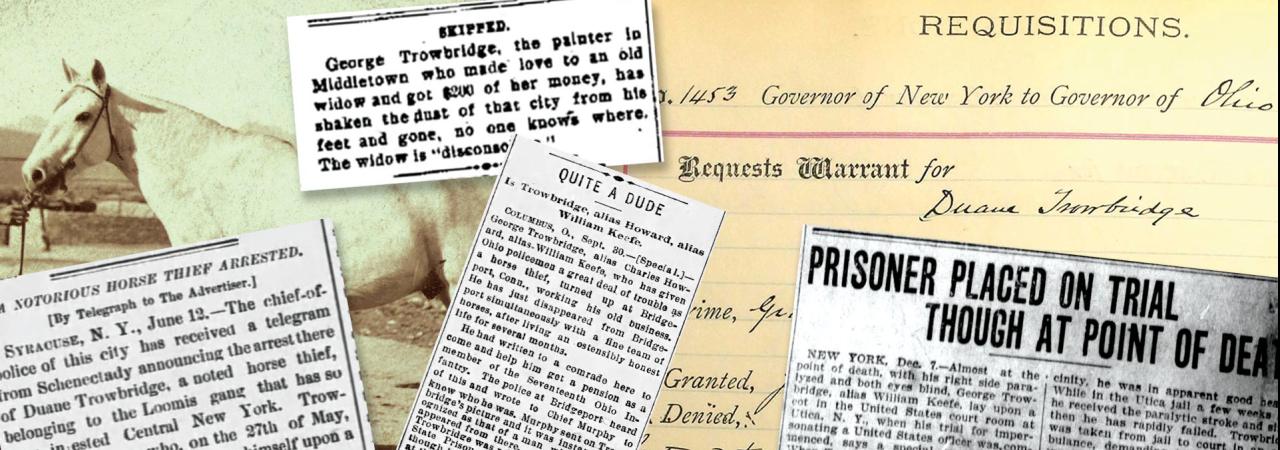Local, state, tribal, and federal agencies use data about ancestry to plan – and evaluate – government programs and policies to ensure that they equitably serve the needs of all groups. As preservationists, this heritage and history are of interest as we work to protect the diverse culture – and the tangible cultural heritage that comes with it – that fills communities over time. Today, on Ancestor Appreciation Day, we celebrate that cultural heritage, including art, food, clothing, styles of architecture, stories, music and knowledge that are passed down to create a sense of belonging.
It also seemed like a fitting time to share a story from our President & CEO Nicholas Redding on his own ancestry. A tangled – and true – web of false identities, bounty jumping (enlisting during the Civil War to collect a bounty and then desert), horse theft, and time in prison. This is a story about what happens when your ancestors are not crowned with glory, and highlights how fascinating ancestry research can be.

Nick began conducting research to trace the Civil War service of his ancestors only to uncover some of his great, great, great grandfather’s (my marriage) story in the National Archives; as he pieced together the story of George D. Trowbridge (aliases: Duane Trowbridge, William Keefer, William Keef, George Duane Baker Trowbridge), he shared the story of “the most notorious bounty jumper in Ohio” (according to investigators set on his trail) with our friends at the American Battlefield Trust, who have partnered with Ancestry and Fold3 to help people trace the veterans and help families understand their stories and the impact on the generations that followed.
According to the notice given in a quaint Conneaut, Ohio, newspaper, George D. Trowbridge departed this Earth on Saturday, August 25, 1917. He is painted as a longtime resident of the town, an honorable veteran of the Civil War and the husband of a Mrs. Matilda Brabender.
“My great-great-grandmother was Matilda — George’s second wife, whom he had married in the early 1900s,” said Redding. “But it wasn’t even legal, because he was still married to a woman in Canada. And, as far as we know, Matilda had children from a previous marriage but not with George; meaning I’m not blood-related to him … which might be a good thing!”
 Born in Elmira, New York, on April 5, 1844, George Duane Trowbridge was the eldest son of working-class parents, George and Harriet Trowbridge. The Federal Census of 1850 shows that the family had relocated northeast to Preble, where the patriarch worked as a carpenter and joiner to support his wife and four children, including seven-year-old George.
Born in Elmira, New York, on April 5, 1844, George Duane Trowbridge was the eldest son of working-class parents, George and Harriet Trowbridge. The Federal Census of 1850 shows that the family had relocated northeast to Preble, where the patriarch worked as a carpenter and joiner to support his wife and four children, including seven-year-old George.
But during his lifetime, George often had a different take than what the records tell us. For instance, on September 16, 1903, he told a pension official that his adopted name was George Duane Trowbridge. He expanded the story, stating that his adopted family claimed his biological father’s name was Keefe and that his own baptismal name was William Keefe. Of course, this contradicts another affidavit claiming that he had never known anyone by the name of William Keefe. The story becomes even more convoluted and dicey as the Civil War arrives.
READ MORE OF “THE TROWBRIDGE FILES” FROM THE AMERICAN BATTLEFIELD TRUST

